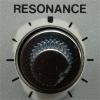Leaderboard
Popular Content
Showing content with the highest reputation on 03/03/20 in all areas
-
i agree to everything in your first post in this thread, but have to disagree with most of this post. ime much of modern goa sounds worse on the dancefloor than at home. a few years ago i was looking forward to seeing cosmic dimension, skarma and morphic resonance live, but the livesets i've since heard from of all three of them were very disappointing. at home with good speakers or good headphones you can make out the details of the multilayered music, but at a party that's impossible and the music just turns into a giant mess. the same is often true for dj sets that focus on post-2012 newschool, so it's not just these producers. the problem is not compression or loudness; there is enough music that's limited even harder and still sounds good. it also can't be mixing; i've heard badly mixed oldschool sound good on the same system. neither can it be complexity per se; pleiadians sounded great at the same sound system where i left the dancefloor when cosmic dimension was playing. rather i think it's a peculiar combination of these things, where modern goa producers want to outdo past music by adding "more stuff", making the tracks harder to mix, leading to not quite perfect mixes that aren't optimised for loudness but are mastered to modern levels anyway. the result is ok when listened to on a good system, but in a real life environment where you neither have a perfect sound system nor perfect acoustics, maybe with levels in the red and with you not standing in the ideal listening position it all breaks down. goa can sound good on modern systems with modern, "competitive" mastering, but it has to abandon the idea that more elements always equal better, "more goa" sound. i'd definitely say quality over quantity when melodies are concened. not only for a story-telling but also from a mixing perspective. that brings us back to the definition of goa. would iconic, tracks that are minimalistic compared to modern goa, such as nmda - vitan, morphem - my plan or miranda - gnocchi still be released as goa trance today if we didn't know them already? vitan has kick and bass that are basically identical to early progressive and there are pretty much no leads playing for the first 2/3 of the track. most of it is kick and bass, percussion and a few strings/pads for atmosphere. then there is just a single true lead playing a single pattern at the end. my plan has at most one lead playing at the time, a few "drops" straight to kick and bass, and fx that talk to each other like in fullon. gnocchi again has "drops" to kick and bass, lengthy fx driven sections with no melodies at all, one bubbly lead that almost leaves the impression of fx rather than a melody (although it's playing a melody), one acidline and one "melodic" melody. both tracks rely heavily on atmosphere, as did a lot of early newschool, but most modern newschool doesn't. this atmosphere is possible because there are sections where you only have pads or long sweeps but it seems for modern goa everything has to be filled up with melodies. sometimes to the point where there's no room to the sounds to breathe. when there's no contrast between melodic climaxes and the rest of the track anymore (it doesn't have to be breakdowns. not needing lots of breakdowns is a plus imho), it all starts to sound the same, there is no room for storytelling or memorable moments. if it's that way for an entire set it really gets tiring. i don't think producers now are looking for the perfect kick and bass that much. at least the kicks on the tracks i mentioned (i'm not so sure about vitan) stand out more than the kick and bass in modern newschool. the kick in my plan even sounds much more like what we'd now call a fullon kick. btw: you've produced enough tracks to count as a producer imho2 points
-
Yeah first of all @Kitrinos, my previous answer wasn't directed specifically at you, sorry if that wasn't clear 100% agreed, on principle, but I think it's a tad more complicated than that. Depending on the context (you're a newcomer or not, you can stand up for yourself or not, etc) your choices can be very limited, and it can sometimes simply boil down to "it's either this, or find somebody else who'll release your stuff / do it yourself"......and some people know it all too damn well. Or, even without reaching that far, labels usually try to maintain some kind of "consistency" (for a lack of a better word) across releases. We thankfully (or unfortunately, depending on your mindset) live in a day and age where you *can* pretty much do everything yourself, release distribution included; so you now decide to release your tracks independently, juuust like you want (headroom, plenty of dynamics, the whole shebang y'know). Great; but now you sound way "lower" than everybody else, and while some DJs will adjust accordingly (or, as I call it, "do their job" #madlad), the vast majority won't even bother. People on a dancefloor will wonder why everything turned so quiet, "vooooluuuuuuume" shouts will be heard, and the Riders of the Apocalypse will suddenly show up. Still, as I previously said, I 100% agree with you, and some really *do* care about it, of course -- I'm merely trying to point out that it's sometimes not as clear-cut as "stOp ovErComPreSsing sh1t!" Haha, I feel ya. Reminds me of my "day job" (software development) -- a metric shit-ton of advice like "can't you just modify this, it's so easy, like 2 lines of code to change! Why are you telling me it'll take a week to do?" Still, constructive feedback is always welcome. See @recursion loop's post for that (and most of his posts across the board, actually). Agreeing or not is besides the point here, but there is enough food for thought for somebody to digest if they so wish, compared to "its EZ, just be unique lol" (which is pretty fucking funny in itself coming from yet-another-dj mostly spinning the same shit as everybody else...see, being arrogant and patronizing works both ways, ain't that amazing ) Agreed 100% as well. As Kitrinos said though, most of the dudes producing here are doing this out of sheer passion and are not planning to make a career out of it (or at least I hope, for their sake), which is actually a blessing. You can truly do whatever you want, and if that means loading 150 emulations of a TB303 and tweaking knobs forever (*cough*cough*)...well, you do you ¯\_(ツ)_/¯. This won't affect your bottom line *at all*. Interesting topic nonetheless2 points
-
OK, the truth is that DJSunborn put it in an arrogant and patronizing way, but I would like to focus more on my points, which I think are worth reflecting on. If that's your style, end of story. Of course you don't need to make your music slower! The point is: the scarcity of lower bpm tracks indicates too much homogeneity and the lack of variation in the genre, which cannot be a good thing. Goa trance, unlike other styles, is NOT bpm-dependent. Label owners should be blamed more than artists for brickwall mastering, for sure. But the artists, if they do care, can also do sth about it. It's THEIR music after all. As far as I know, (almost?) nobody's financial survival depends on producing goa trance. It is a hobby/creative activity that fulfils you (the artist) and that may allow you to have an extra income occasionally. That's how it is. If artists were primarily interested in making money, they wouldn't devote so much of their time in making this type of music. So, if you REALLY care (and you think your music is good enough), you should not allow others to dictate how to master your music. If I remember correctly, Dragon Twins had demanded dynamic mastering in the past. And also, some labels do care about it (e.g. Cronomi).2 points
-
Okay, if it's a tread for requests/wishes to goa producers, then mine would be: - Learn some musical theory, goa is a melodic genre but not any random sequence of notes is actually a melody. - Use less layes, less notes. Quality over quanity. Use less elements, give them more room to breathe, polish them to make them sound really exciting instead of burying them in a super-busy mix. - Think more about the track stucture, breakdowns/buildups/climaxes, tension/release. A track must tell a story to be actually great - Try more new different sounds, there is a world beyond the cutoff and resonance knobs on a 303 emulation. There is FM synthesis, wavetable synthesis, additive synthesis, all of them are capable of making all sorts of unusual futuristic trippy sounds.2 points
-
I think that you have misunderstood me. I did not imply that today's music is not as good as in 2005-2010. I was simply trying to make inferences on what helps albums stand the test of time and I predict that albums with some degree of originality (obviously), personal 'signature sound', and variation in mood/sound design/tempo will still be remembered and valued in 10+ years.1 point
-
Loud mastering is nothing to do with P.A. systems specifically, it is not like PA systems are designed for loud masters alone. A good P.A. will play a track of lower perceived volume very well. It is the differences between volumes presented to the dance floor that could cause an issue. If DJ's pre fade and tweak their gains this would be a non issue. What is happening is that loud mastering is affecting tonality of mixing to a degree, this is arguably creating less sonic variation between modern artists. Some loud mastering can sound very good but it is not easy to keep things clean sounding. A good track is a good track, well mixed tracks come in many "shapes and sizes" but all won't go loud gracefully, some will, some won't. That does not affect if a track does the business or not. I cannot imagine a DJ not playing a great track because it is a few dB lower than the latest big label full on release.I think loud mastering can produce a sense of anxiety in those who otherwise make a great track but do not realize the loudest perceived volumes of the latest release. Don't be put off, just make good tracks, labels sign great tracks not the loudest noises. In fact for Goa trance styled music lower level music should fair even better, ultimately it is related to the past where variation was key,(Goa was not even Goa before it was Goa), it was a mash up of techno, high energy, industrial and rave, it should be a much better situation for lower level masters than 2020 Full on Psy. For all Goa trance producers and psy trance there is a conflict between nostalgia and sounding futuristic. The former relating more to melody and the latter to a greater focus on staccato single or few note rhythmical notes/patterns (often FM synths or chopped up synth audio). Veer too far off course and is this psy trance or Goa anymore ? It is something I think about often, where to take this next track, what is it going to be, from where will it draw ? Sometimes I have a clear concept, sometimes none and I just start. I think feeling free is very important, unnerving at times yes but I need to have time to think about where I like to go next personally. I enjoy some nostalgia and the futuristic sound, I tend to enjoy mixing it up. Out of interest most modern Goa sounds pretty clean to me, it seems to lack the lower mid thickness (and some depth) it does not sound like the mid 90's. I suspect this would be relatively easy to recreate with all the retro plug ins (desk emulations, virtual analogue synths, cheap project studio style reverbs etc. Quadraverbs/Digitech/Lexicon Alex/Reflex type units) us producers have now, but it seems to have thinned out. Then again I suppose the goal is not a precise retro recreation of a semi analogue (Mackie, Soundcraft Spirit) / digital MIDI studio, with a 12inch vinyl onto a DAT tape through 16 bit converters. High pass filters did not even exist on the line inputs of such project studio desks. (only a single button at 80/100Hz for the mic input)1 point
-
Thankfully at least some of us know how to use the trim knobs on a DJ mixer1 point
-
I think goa generally follows the same direction as other kinds of psytrance, it becomes mostly a music for dancefloors with home listeners put out of the equation. Hence the loudness and compression, hence the focus on the basslines and the unfiication of the kick/bass sound, hence the simplified musical structure and more homogenized sound, less breakdowns, no long intros. Also when you have to devote most of your time to make a perfect sounding kick-bass combo, there is not so much creative energy left to make rest of the track memorable. I may be wrong since I'm not a producer myself and my knowldedge of production and mixing is quite supeficial, but this is the impression I'm getting from newer releases in whatever psy genres.1 point
-
History certainly seem to repeat itself around here in the pienews universe. Around the time that the albums the OP mentions in his list were released, people here on this very forum presented similar lists. But with the classical albums from the 90’s. And complained about the very same albums you now present in your list. So we can be quite certain about this phenomena beeing repeated in a decade or so. Maybe not on psynews, as I’m not sure that it will be around for another decade, but who knows. The debates will however continue on other platforms. I do believe that there has been a generational shift, and I get the impression that most of the so called goa trance fans of today are veterans. Who we can compare to the older generations who keep listening to rock n roll and other genres they grew up with in the 50’s, 60’s etc. Goa trance (as in the classical style of the 90’s, whose formula has been replicated in the so called Neo Goa style) in this day and age is mostly a very specialized narrow hobby of a few entusiasts/CD/DAT/mp3 and vinyl collectors. Some of whom are also producers. And the term goa trance has become somehat watered out. Much in part because a lot of the big labels who distribute psy/prog/full on/dark psy. Have chosen to call many of their compilations for anything and then insert the phrase goa trance or simply goa on the cover art/compilation name. Just do a search for goa on spotify, and it will be painfully obvious. So for the general listener/party goer, they will have no clue about the stylistic features or differences. They will simply associate goa with whatever is played on outdoors parties with somekind of psychedelic trance music. If people wanna give lectures on what this music should contain according to their own personal preferences. I don’t think that said people will be very successful with their wishful thinking. Certainly not from this very small and abandoned platform. If you wanna make a real change, go produce what you think is the proper goa trance instead. And pray that it might have some impact. Because you will need a lot of prayers indeed. That this genre is even alive today is solely thanks to a dedicated few, who has resurrected the genre and now maintains its life artificially. If these labels quit, this genre will probably become a mere anecdote in time.1 point
-
Remember it's not usually what you say but how you say it that is offensive. He original post comes across as a little aggressive I think. I must admit that from about 2010 until 2019 I had given up on the music in this scene completely. Everything was so boring to me, and that's why I went back to exploring my pre-Goa interests like drum n bass, Goa, house & IDM. such a long break was great as there was much amazing work being done in other genres, and last year I started again to check the music in this scene and I must thank Global Sect & Zenon for making be dig deeper. The sound I miss most was the crossover over of Industrial & EBM. Project by Tim Schuldt, Xenomoroh, early Sandman. Really also the experimental styles on va's like Tantrance 6 as well as the early Boshke Beats/Horns n Hoofs sounds. but I can accept these styles are not being made for various reasons, and just listen to the styles that get me feeling. as a producer of music for advertising & short films now, there is nothing more I hate than people who are fans but not involved in project giving unwanted advice. it's fine to tell a musician to experiment & make whatever you want, but if you want to earn anything or make a career you also have to consider what the majority want and not what the minority crave. it might be selling out, but sometimes you have to sellout to also finance the real side of your passion as well. Anyway what a diatribe haha.1 point
-
1 point
-
Yeah, tell that to party/festival organizers and/or label managers, not producers. Do you really think we enjoy having our work completely brickwalled just to please somebody's PA ? Be unique, and get crucified by the almighty Goa mafia who knows better, because "omG uR NoT gOa". Or try to stay within the genre's boundaries, and get crucified by the almighty Goa mafia who knows better, because "ur NOT uniQue omg". Your choice. See above. At the end of the day, a genre is....a genre for a reason. Uh-oh, what if I like higher-bpm goa and anything lower than 150 bores the shit out of me. Seriously, those "tips" are hysterical and a perfect summary of this scene as a whole.1 point









